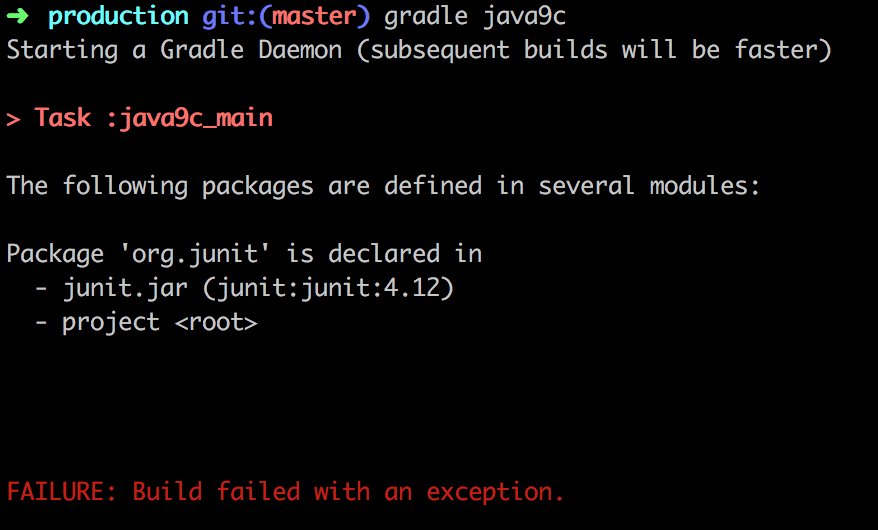helps to detect problems with split packages prior to the migration
It was an amazing journey to the JavaOne this year. There I had a great chance to present some features of IntelliJ IDEA on the huge stage. I liked it. I was also amazed by the backstage processes. So many people are involved in there.
During those crazy times, I realized there is a problem for anyone willing to switch to Java modules. The problem is in packages. Every package is now allowed to be used only in one entry in the module path. It is still ok if you’re on classpath. For more information, you may consider project jigsaw, JEP 261, AvoidConcealedPackageConflicts, Split Packages
The first step in the migration to modules is to make sure there are no package name clashes between files. The best way to know that for sure is to have a tool that analyze classpath for conflicts. So I created the plugin for Gradle.
Usage is pretty simple.
plugins {
id 'org.jonnyzzz.java9c' version '0.2.1' /// Mind the updates!
}Once the plugin is applied, it adds the java9c task. The task itself depends on several generated tasks for
every source set, e.g., main or test. java9c task, prints out the detected package conflicts for each source set.
For the demonstration, I created a tiny project that has classes in the junit’s main package. The report looks like that:

For multiple project Gradle projects, you may include the plugin in the following way, or, alternatively, you may select only specific projects to check.
plugins {
id 'org.jonnyzzz.java9c' version '0.2.1' /// Mind the updates!
}
subprojects {
apply plugin: 'org.jonnyzzz.java9c'
}The plugin is open source. You may find sources on GitHub.
It is so easy to create so many different features. This time I decided to create a feature-poor plugin.
Meanwhile, I reserved the java9c extension in Gradle for future features for the plugin.
Let me know if there is something I missed. Also, you may create a pull
request here.
Sources & Binaries
Sources are on GitHub
Plugin page on Gradle Plugins
The plugin is implemented in pure kotlin
Have fun! And let me know if it helps.